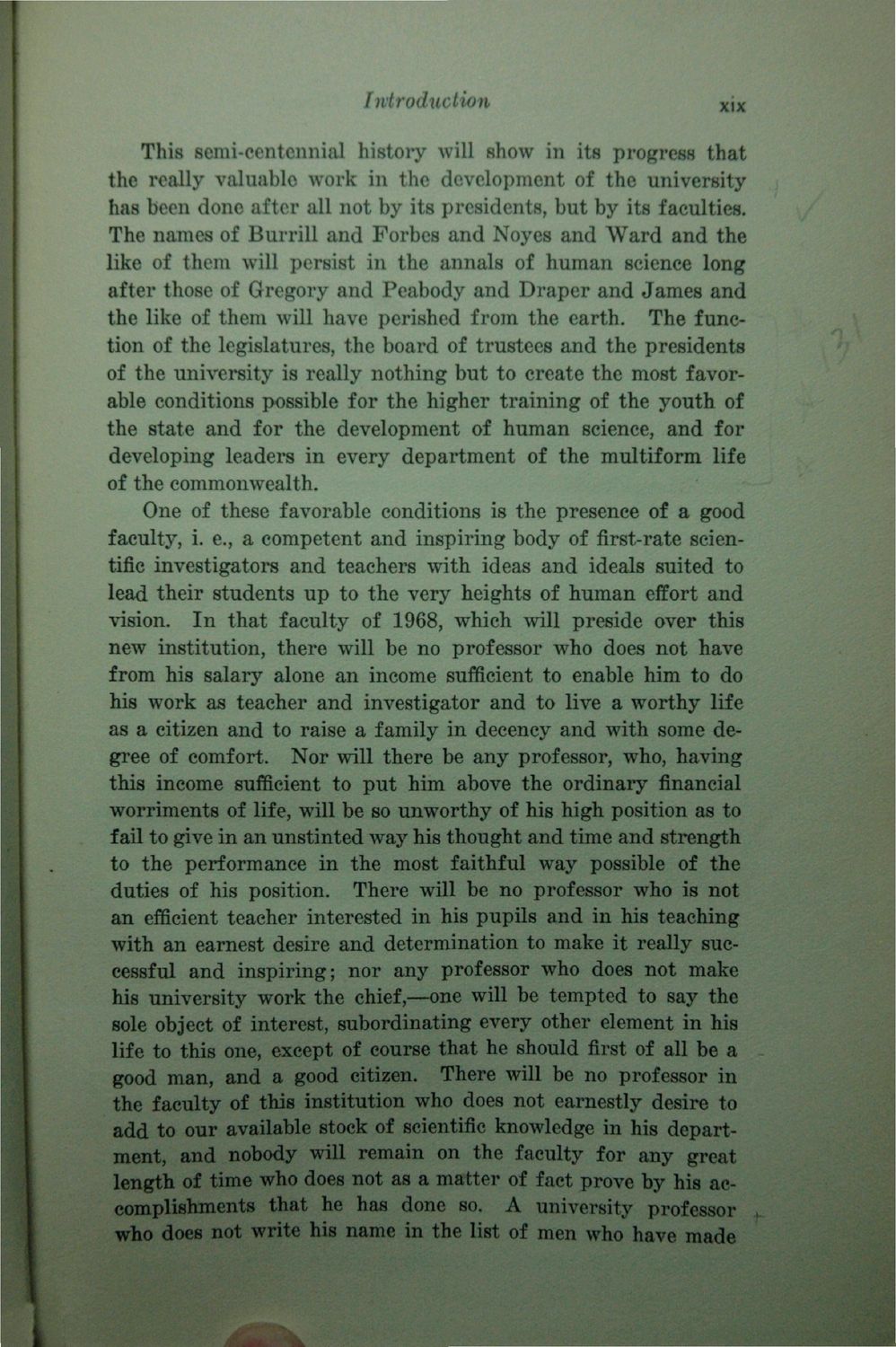| |
| |
Caption: Book - History of the University (Powell)
This is a reduced-resolution page image for fast online browsing.

EXTRACTED TEXT FROM PAGE:
Introduction xtx This semi-centennial history will show in its progress that the really valuable work in the development of the university has been done after all not by its presidents, but by its faculties. The names of Burrill and Forbes and Noyes and Ward and the like of them will persist in the annals of human science long after those of Gregory and Peabody and Draper and James and the like of them will have perished from the earth. The function of the legislatures, the board of trustees and the presidents of the university is really nothing but to create the most favorable conditions possible for the higher training of the youth of the state and for the development of human science, and for developing leaders in every department of the multiform life of the commonwealth. One of these favorable conditions is the presence of a good faculty, i. e., a competent and inspiring body of first-rate scientific investigators and teachers with ideas and ideals suited to lead their students up to the very heights of human effort and vision. In that faculty of 1968, which will preside over this new institution, there will be no professor who does not have from his salary alone an income sufficient to enable him to do his work as teacher and investigator and to live a worthy life as a citizen and to raise a family in decency and with some degree of comfort. Nor will there be any professor, who, having this income sufficient to put him above the ordinary financial worriments of life, will be so unworthy of his high position as to fail to give in an unstinted way his thought and time and strength to the performance in the most faithful way possible of the duties of his position. There will be no professor who is not an efficient teacher interested in his pupils and in his teaching with an earnest desire and determination to make it really successful and inspiring; nor any professor who does not make his university work the chief,—one will be tempted to say the sole object of interest, subordinating every other element in his life to this one, except of course that he should first of all be a good man, and a good citizen. There will be no professor in the faculty of this institution who does not earnestly desire to add to our available stock of scientific knowledge in his department, and nobody will remain on the faculty for any great length of time who does not as a matter of fact prove by his accomplishments that he has done so. A university professor who does not write his name in the list of men who have made
| |